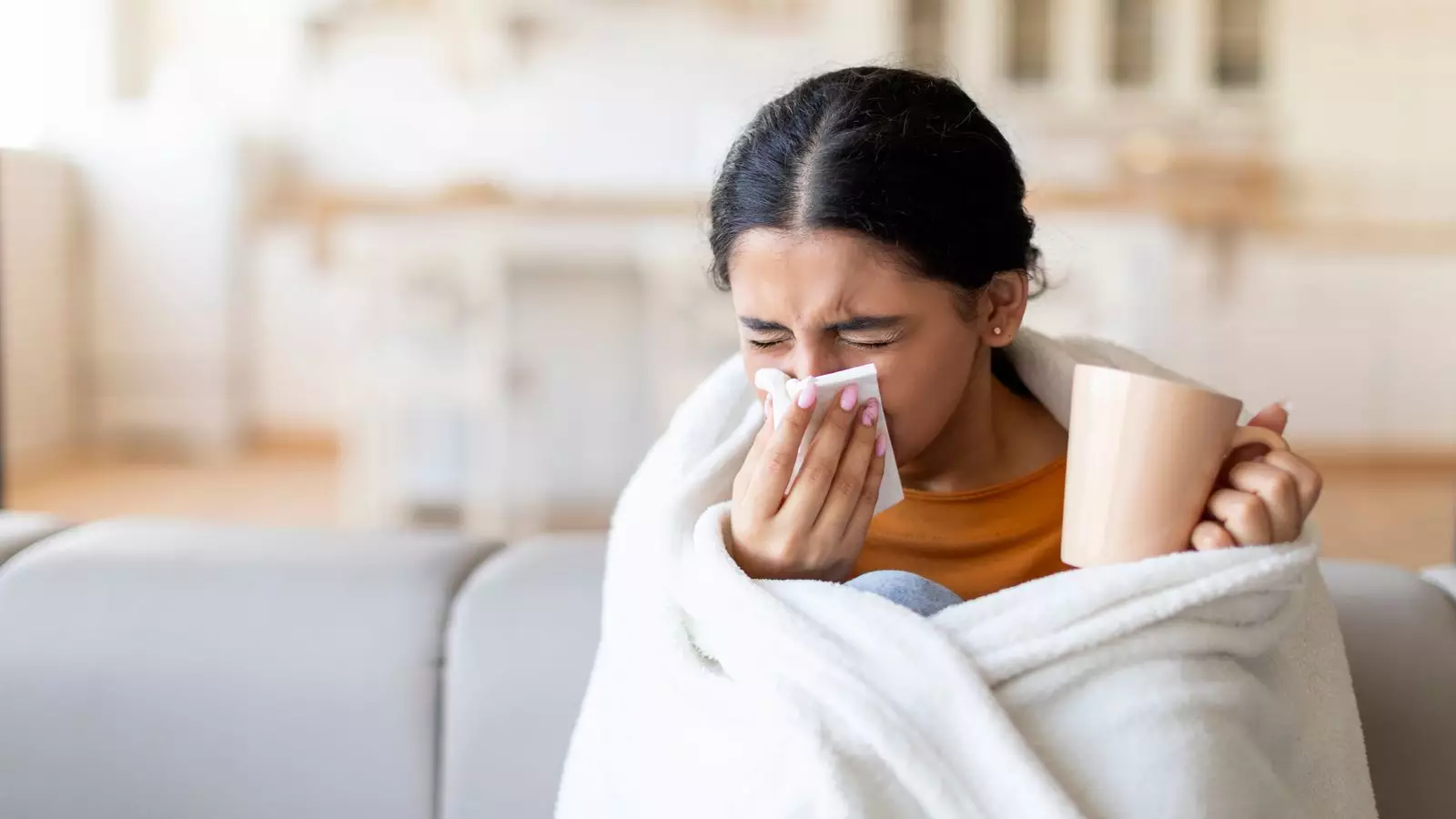As winter approaches, a concerning wave of respiratory illnesses has engulfed the United Kingdom, leading to an alarming surge in hospital admissions. Recent data from the National Health Service (NHS) indicates a staggering 70% increase in flu-related hospital cases within a single week, underscoring the urgency of this public health challenge. The average daily number of patients hospitalized due to flu stands at 1,861, a significant rise from the previous week’s total of 1,099. This sharp increase in flu cases highlights not only a seasonal trend but also the likelihood of compounded illness.
Current statistics reveal that children aged 5 to 14 are experiencing the highest rates of flu infections. The UK Health Security Agency has noted that as educational institutions approach their winter breaks, it is anticipated that flu cases among adults will begin to escalate as well. The interconnected nature of these viral illnesses cannot be ignored; schools often act as a breeding ground for pathogens, posing a heightened risk for outbreaks as families gather indoors during colder months.
In addition to the flu, other seasonal illnesses like norovirus and respiratory syncytial virus (RSV) are also becoming increasingly prevalent. The NHS reported an average of 837 hospital beds occupied by individuals presenting with norovirus symptoms—a 10% increase compared to the previous week and a startling 64% rise compared to last year. Furthermore, there’s an average of 152 children hospitalized due to RSV each day, indicating an ongoing rise in illnesses that affect the respiratory system.
The complicated nature of these simultaneous outbreaks has given rise to fears of a “quad-demic.” This term refers to the co-circulation of four major viral illnesses that traditionally spike during the winter. With people increasingly gathering indoors, the likelihood of these illnesses spreading concurrently intensifies, heightening the potential health risks for vulnerable populations.
In light of this emerging health crisis, public health officials have emphasized the critical importance of vaccinations. The NHS offers vaccines for flu, COVID-19, and RSV. Eligible individuals, including those over 65, pregnant women, and people with certain underlying health conditions, are particularly encouraged to take advantage of free vaccination programs. Vaccination sites are conveniently located at pharmacies, supermarkets, and even festive venues like Christmas markets, making it easier for individuals to access these essential health services.
Professor Sir Stephen Powis, NHS England’s medical director, has been vocal about the pressing need for vaccinations to safeguard against severe illness and minimize the risk of a “festive flu” outbreak. Health Secretary Wes Streeting has echoed this sentiment, urging the public to prioritize vaccination as a means of protecting themselves and easing the burden on the already strained healthcare system.
Amid these pressing health challenges, it is worth noting some recent improvements in the NHS’s overall operational metrics. The waiting list for treatment has seen a slight decrease for three consecutive months, dropping from 7.57 million in September to 7.54 million in October. However, the figures still reflect a long-standing issue within the healthcare sector. The number of patients waiting longer than the government’s target of 18 weeks also decreased marginally, further indicating a slow but steady progress in addressing backlog issues.
Despite these advancements, the NHS has faced unprecedented pressures this November. Emergency Departments (A&Es) saw record attendance levels, with 2.31 million visits. Unfortunately, the percentage of patients treated within the four-hour target window fell from 58.1% in October to 57% in November, indicating ongoing systemic strain within the emergency framework. Furthermore, an increase in ambulance handover times to hospitals raises additional concerns about the public health response’s efficacy.
As health professionals confront the broad spectrum of winter illnesses, communities must remain vigilant about preventive health measures such as vaccinations. The rise in hospitalizations has illuminated several critical facets of public health: the importance of timely vaccinations, the need for robust health infrastructure, and the essence of public cooperation in mitigating the impacts of respiratory viruses. A multifaceted approach combining clinical practice, public awareness, and preventive health strategies will be crucial in navigating the challenges of this winter season and beyond.


Leave a Reply